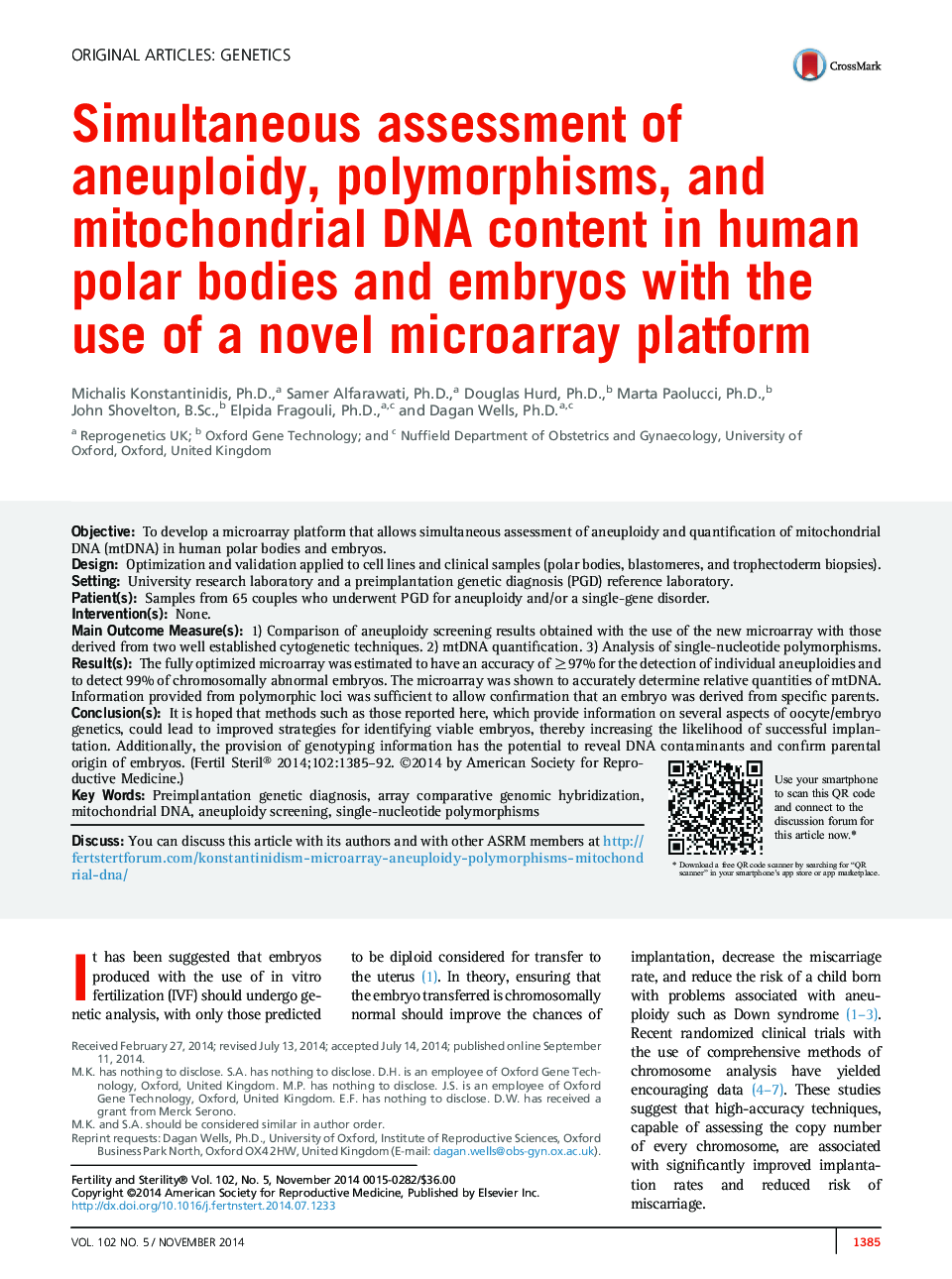| کد مقاله | کد نشریه | سال انتشار | مقاله انگلیسی | نسخه تمام متن |
|---|---|---|---|---|
| 6178781 | 1253285 | 2014 | 8 صفحه PDF | دانلود رایگان |

ObjectiveTo develop a microarray platform that allows simultaneous assessment of aneuploidy and quantification of mitochondrial DNA (mtDNA) in human polar bodies and embryos.DesignOptimization and validation applied to cell lines and clinical samples (polar bodies, blastomeres, and trophectoderm biopsies).SettingUniversity research laboratory and a preimplantation genetic diagnosis (PGD) reference laboratory.Patient(s)Samples from 65 couples who underwent PGD for aneuploidy and/or a single-gene disorder.Intervention(s)None.Main Outcome Measure(s)1) Comparison of aneuploidy screening results obtained with the use of the new microarray with those derived from two well established cytogenetic techniques. 2) mtDNA quantification. 3) Analysis of single-nucleotide polymorphisms.Result(s)The fully optimized microarray was estimated to have an accuracy of â¥97% for the detection of individual aneuploidies and to detect 99% of chromosomally abnormal embryos. The microarray was shown to accurately determine relative quantities of mtDNA. Information provided from polymorphic loci was sufficient to allow confirmation that an embryo was derived from specific parents.Conclusion(s)It is hoped that methods such as those reported here, which provide information on several aspects of oocyte/embryo genetics, could lead to improved strategies for identifying viable embryos, thereby increasing the likelihood of successful implantation. Additionally, the provision of genotyping information has the potential to reveal DNA contaminants and confirm parental origin of embryos.
Journal: Fertility and Sterility - Volume 102, Issue 5, November 2014, Pages 1385-1392